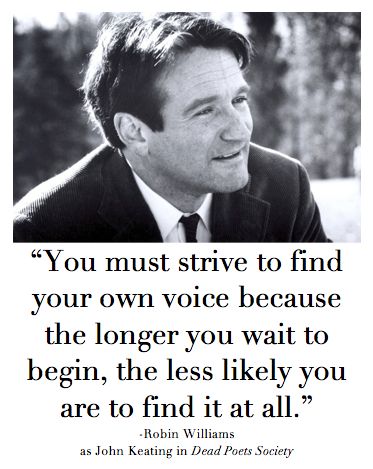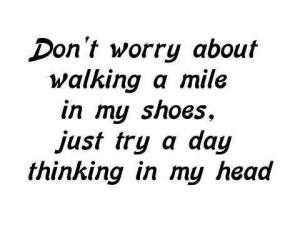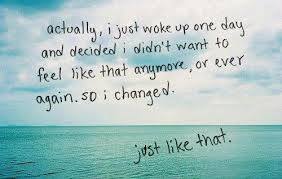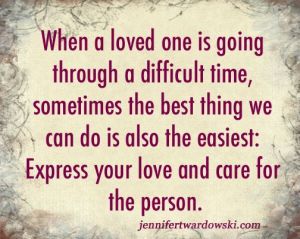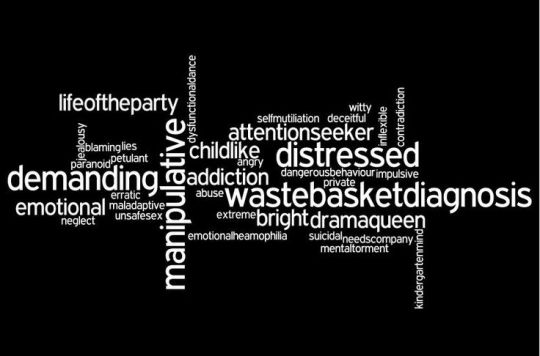Boosting self-esteem through physical activity
As the next in our series of guest posts on self-esteem I’d like to introduce you to Glenda. As a clinical nutritionist, neuroscientist, Personal Trainer and Positive Wellbeing Coach, she knows a little something about healthy living. She has joined us today to talk about how you can boost your self-esteem by moving your body. And I think most of you will be pleased to know that you don’t have to smash yourself at the gym to get the benefits! Most of the time it’s the simplest things that make the biggest differences. So check out what Glenda has to say and visit her site.
————————————————————————–
Self-esteem is quite an interesting concept that many people misunderstand. You see, most people think of self-esteem as an all or none thing, where you either have it or you don’t. But really, it works on a sliding scale that can be nudged one way or the other depending firstly on what life throws at you, but also on how you perceive and react to those events.
Sometimes it’s something massive that either boosts or decimates your self-esteem, for instance receiving an award or commendation for doing an excellent job, or on the negative side it could be caused by a failure or loss. Yet your self-esteem can also be affected by many little things over and over that push you a bit one way and then another, so that it’s the overall balance of these little pushes that decides where it finally settles.
Another thing that’s often misunderstood about self-esteem is that it’s possible to have a lot in some parts of your life while having very little in other areas. As an example, you could be very confident in what you do for a living and have no issues in your professional life, yet you may have low self-esteem on a personal level because you haven’t yet had a ‘successful’ relationship and are being constantly hounded by your family on when you’re going to settle down.
Regardless of how much self-esteem you have, or in which parts of your life that it exists, there are ways to boost it. But before we talk about how you can do this, let’s make sure we’re on the same page as to what self-esteem is. There are a number of definitions, but here we’ll consider self-esteem in terms of the Oxford Dictionary definition: “confidence in one’s own worth or abilities”.
If you’re able to directly pinpoint where your issues exist, it may be possible to work on boosting your self-esteem directly by improving your abilities, or your confidence in those abilities, that relate to that particular issue. For instance, if you had low self-esteem about your cooking abilities and your confidence to cook meals that your family would enjoy, you could directly work on this by taking cooking classes, reading cookbooks, and practicing tried and true recipes until you could cook a number of meals with confidence. In this example, boosting self-esteem for a particular activity is relatively easy because you can readily define the activity that’s of concern.
But what if your self-esteem issue is a bit harder to pin down? What can you do then to improve it?
It may seem a little bit counterintuitive at first, but you can boost your self-esteem by practicing and mastering activities that create an overall sense of confidence, strength and powerfulness within you. While there are many types of activities that can do this, I’ve personally found that exercise, fitness and other physical activities are excellent ways to create these feelings within you and to boost your self-esteem.
Alright, so how does physical activity help self-esteem?
Firstly it teaches you to listen to your body, creating a mind-body connection that keeps you centred during the activity. This helps to strengthen your understanding of what you’re achieving at that time, bolstering your knowledge of your abilities and thus your confidence in performing them. It also helps to stop your mind from wandering away and getting stuck in any negative thoughts that might otherwise have you questioning your abilities – and when you don’t question your capabilities, you more naturally learn to respect and acknowledge them for what they really are.
The next really important part about physical activity and exercise is that it strengthens your body. This physical strength creates a feeling of power and capability that lets you move through the world with more ease and grace. Knowing that you can trust your body to do what’s needed is incredibly powerful. It helps you to stand tall and move with purpose. There’s also something special that comes with the confidence of physical capability that can’t be taken away from you. It helps to create an “I don’t care” attitude within you – not so much in the sense that nothing is important to you, but more in the sense that the little things just don’t bother you as much as they used to.
A huge bonus that comes from physical activity is that it decreases the amount of stress hormones in your body, i.e. adrenaline and cortisol. When you exercise and get your body moving, your stress hormones get chewed up during the activity, so that when you’ve finished moving, your overall stress levels are considerably less than when you started. If you do physical activity on a regular basis (daily or every second day), this can go a long way to modulating stress. This is also one of the reasons why regular physical activity also helps to manage depression and anxiety. When you’re less stressed, you’re more resilient to the unexpected things that life throws at you. Not getting stressed out every time something little goes wrong means that there’s less of that constant battering to your self-esteem.
If the physical activity that you choose to do is something new, then this allows you to learn new skills. Even if the skills seem unrelated to anything else you do in your life, there’s an incredible amount of confidence boosting that comes from simply being able to say “I did that!”. It could be finally being able to run 5km, hiking up to the top of a mountain, being able to shoot a basketball from the 3-point line, being able to hit a baseball for a home run, learning how to punch or kick correctly in a martial art, learning how to stand up on a surf board, or even learning a new dance routine. It really doesn’t matter what it is (or whether it matters to anyone else), it’s knowing that you did it and that you were able to master a new skill that counts. Reminding yourself that you can learn new things can give you the confidence you need to try out something else in another part of your life.
There’s an important caveat though about learning new skills to boost self-esteem. It’s really critical that when you set out on a new activity that you keep your goals very manageable and that you restrain them to a beginner level for that activity. So this means that it’s best not to attach time limits or standards to the goal. For instance, if your goal was to run 5km, then make that the goal – simply to be able to run a distance of 5km. Don’t put any additional criteria as to how fast you have to be able to run that distance. Only after you’ve achieved the distance should you consider trying to improve your time – but even then, you should only do that if you want to. It’s perfectly okay to be able to say “I did that” and then switch onto another activity to gain a new skill. Maybe running is something that you will choose to enjoy occasionally but never want to run a race, and that is perfectly fine!
So as you can see, there are many reasons why physical activity is so valuable for boosting self-esteem. It’s also one of the reasons why I recommend that everyone tries out a new type of physical activity that pushes their body just a bit further than they normally would push it. It strengthens the body, but also strengthens the mind at the same time, creating a mental resilience and confidence that boosts self-esteem which can transfer across other areas of your life. The trick is to find an activity that you will enjoy and then to set yourself a small and achievable goal. Not only will you boost your self-esteem, you’ll boost your physical and mental health too.
—————————————————————–
Glenda Bishop is a neuroscientist, Registered Nutritionist, personal trainer and positive wellbeing coach. She helps women to reconnect their mind and body by creating a strong foundation of physical health that supports and strengthens their mental health. Glenda’s Mind & Body Reconnect Program creates a gentle strength and confidence from the inside out, leading to positive mental wellbeing that promotes joy and happiness. Click here to find out her 7 Little Secrets for a Healthy Mind and Body.



